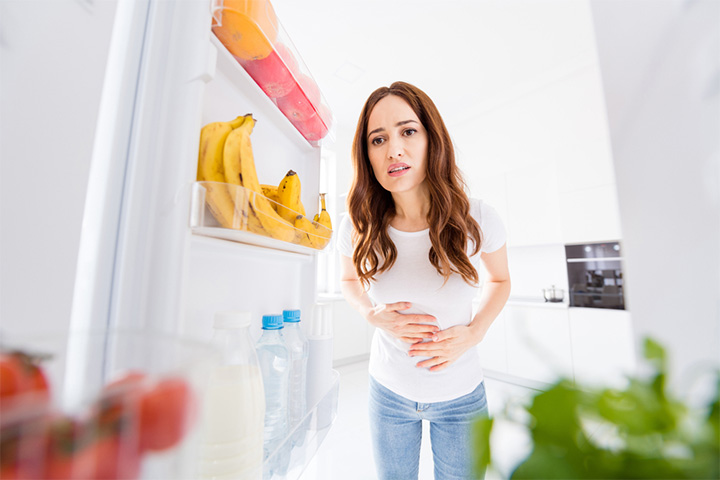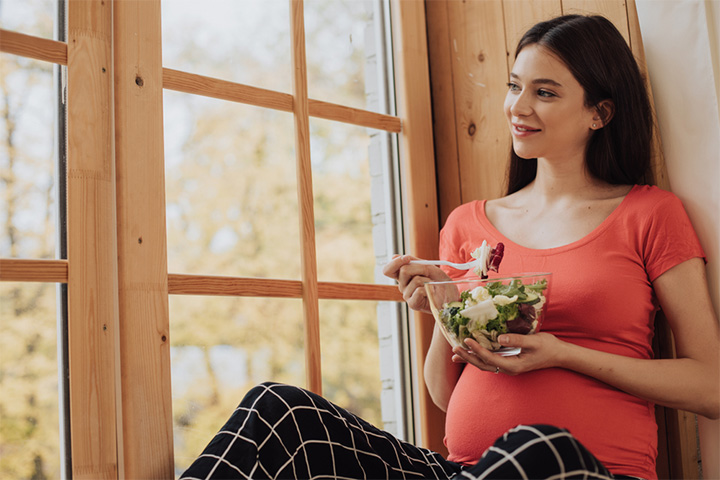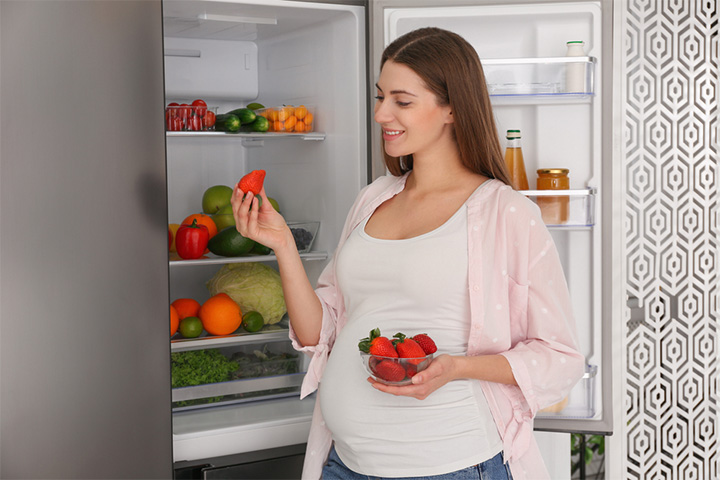
Image: Shutterstock
Pregnancy is one of the most joyous times of your life. You’re carrying your precious little baby, and to accommodate that, your body goes through numerous changes. Your hormone levels are all over the place, and you might start to crave some very specific tastes. But amidst all the chaos, it is essential to give your body the fuel it needs. The best way to do this is by eating specific foods at specific periods of your pregnancy to help you and your baby stay healthy. Your body’s requirements change during pregnancy, and you will have to consume additional protein, vitamins, and minerals. You will also need to consume more calories daily in your second and third trimester. And although this may seem excessive to you, it is important to get all the nutrients you need to have a safe and healthy pregnancy.
Here’s a breakdown of foods pregnant women should eat in all 5 stages of their pregnancy:
1. Stage 1: The Early Weeks
Image: Shutterstock
It’s important to watch what you eat in your first weeks of pregnancy, as this is what constitutes a nutritional reserve for you and your baby as the weeks go by. Keep a stock of foods that will give you the nutrients your body craves at this stage. These are mostly folic-acid-rich foods that aid early spinal development (1). A few weeks into your pregnancy, the onset of morning sickness can leave you feeling weak and pose problems if you can’t keep down the foods your body needs. Eating greens can help relieve morning sickness as they are rich in magnesium (2).
Things to eat a few weeks in:
- Leafy veggies
- Legumes
- Broccoli
- Eggs
2. Stage 2: Weeks 4 to 12
Image: Shutterstock
These are crucial developmental weeks for your baby. Around the 6th week, your baby has started to form red blood cells, and the heart has started to pump blood. This means that you’ll finally get to hear your baby’s heartbeat at your next ultrasound. In addition, consuming iron-rich foods will help your baby along the process of forming its vital organs (3). Iron found in non-vegetarian food is preferred as it is more easily absorbed by the body. However, if you’d like to opt for vegan or vegetarian options, you can speed up the process of the absorption of iron into the body. This is usually done by drinking fruit juices like orange juice rich in Vitamin C (4).
Here is a list of things to eat during your first trimester:
- Dairy
- Eggs
- Meat
- Seafood
By the end of your first trimester, your baby’s brain will start to develop at a rapid pace. So eat foods rich in Omega-3 fatty acids and DHA (5).
You can aid this process by consuming more of these foods:
- Mackerel
- Sardines
- Prenatal vitamin supplements like EPA and DHA
3. Stage 3: Week 13 To 26
Image: Shutterstock
Numerous developments are happening to your baby, and you will need a lot of nutrients to keep up with what your baby needs.
You will need to consume Beta- carotene and DHA for the eyes (6). Here are some foods you can count on for these nutrients.
- Carrots
- Sweet potato
- Spinach
- Sardines
- Mackerel
Calcium is essential for strengthening and bone development (7)
- Milk
- Tofu
- Yogurt
- Cheese
Vitamin D to absorb Calcium (8)
- Herring
- Fortified Milk
Zinc for the production, functioning, and repair of DNA(9)
- Shellfish
- Beans
- Red Meat
- Whole Grain
- Nuts
- Dairy products
4. Stage 4: Week 29 to 40
Image: Shutterstock
Congratulations! You’ve made it to the last leg of the race. As you start approaching your final weeks of pregnancy, here are all the things you need to stock up on.
Vitamin K to help with any blood clots (10)
- Kale
- Green Leaf Lettuce
- Spinach
- Broccoli
- Swiss Chard
- Cauliflower
- Cabbage
Magnesium and Calcium for stronger bones
- Avocado
- Banana
- Legumes
- Raspberries
- Cheese
- Milk
Selenium for healthy lung function (11)
- Brown Rice
- Brazil Nuts
- Eggs
5. Stage 5: First Few Weeks Post Birth
Image: Shutterstock
It is important to keep an eye on what you’re eating the first few weeks after giving birth, as your diet still directly affects your baby’s health as you are breastfeeding them. Besides, it is important to keep you strong and healthy too.
Copper to reduce inflammation (12)
- Almonds
- Cashew Nuts
- Sesame Seeds
Keep in mind that high-calorie foods are important. Women need at least 300 additional calories while pregnant, so don’t deprive yourself (13). Find a healthy balance between giving into your pregnancy cravings and getting essential nutrients into your body. The point is not to get on a strict, rigorous diet but to be mindful about including foods that will help your baby develop properly. You can still indulge in a donut once in a while. Your baby will appreciate that too. At the end of the day, what matters the most is that you are happy and healthy. Make sure to take care of yourself and feed yourself well. Happy pregnancy!

















